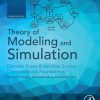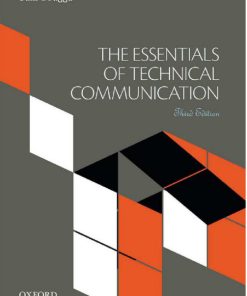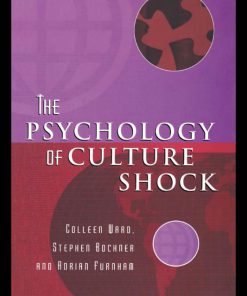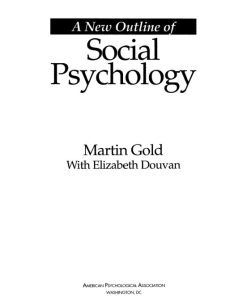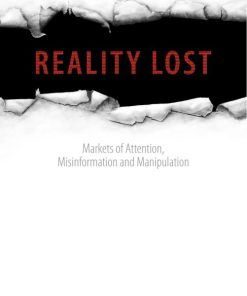The Psychology of Attention 2nd Edition by Elizabeth Styles ISBN 1841693979 9781841693972
$50.00 Original price was: $50.00.$25.00Current price is: $25.00.
Authors:Elizabeth A. Styles , Series:Psychology [184] , Tags:Psychology / General Psychology / Neuropsychology , Author sort:Styles, Elizabeth A. , Languages:Languages:eng , Published:Published:Oct 2006 , Publisher:Psychology Press , Comments:Comments:Research on attention has evolved dramatically in recent years. There are now many new ways of studying how we are able to select some aspects for processing, whilst ignoring others, and how we are able to combine tasks, learn skills and make intentional actions. Attention is increasingly seen as a complex process intimately linked with perception, memory and action. New questions are continually being addressed, for example in the area of cross modal attention, and the biological bases of attention.
The Psychology of Attention 2nd Edition by Elizabeth Styles – Ebook PDF Instant Download/Delivery. 1841693979 ,9781841693972
Full download The Psychology of Attention 2nd Edition after payment
Product details:
ISBN 10: 1841693979
ISBN 13: 9781841693972
Author: Elizabeth Styles
Research on attention has evolved dramatically in recent years. There are now many new ways of studying how we are able to select some aspects for processing, whilst ignoring others, and how we are able to combine tasks, learn skills and make intentional actions. Attention is increasingly seen as a complex process intimately linked with perception, memory and action. New questions are continually being addressed, for example in the area of cross modal attention, and the biological bases of attention.
After an initial consideration of what attention might be, this book charts the development in the ideas and theories which surround the field. An entirely new chapter addresses the nature of auditory attention and the question of how visual and auditory attention are combined across modalities. The problems of task combination, skill acquisition and automaticity are also considered, as well as the selection and control of action, and conscious and unconscious processing.
The Psychology of Attention, Second Edition provides a comprehensive and accessible introduction to this fascinating and rapidly developing field
The Psychology of Attention 2nd Edition Table of contents:
-
Introduction to Attention
- Defining Attention in Psychological Terms
- The Role of Attention in Everyday Life
- Historical Background and Evolution of Attention Research
- Structure and Goals of the Book
-
Theoretical Foundations of Attention
- Early Theories of Attention: Broadbent, Treisman, and Kahneman
- Theories of Selective Attention
- The Role of Working Memory in Attention
- Theories of Divided Attention and Cognitive Load
- Current Models and Frameworks in Attention Research
-
Types of Attention
- Focused Attention: Concentration and Selectivity
- Sustained Attention: Vigilance and Monitoring
- Divided Attention: Multitasking and Task Switching
- Executive Attention: Control and Regulation
- The Interaction Between Different Types of Attention
-
Cognitive Processes and Attention
- Perception and Attention: How We Focus on Sensory Information
- The Role of Attention in Memory and Learning
- Attention and Decision-Making Processes
- The Interaction Between Attention and Emotion
- Attention in Problem-Solving and Creativity
-
The Mechanisms of Attention
- Neural Mechanisms of Attention: The Brain Areas Involved
- The Role of Neurotransmitters in Attention
- Cognitive and Physiological Underpinnings of Attention
- Attentional Shifts and Top-Down vs. Bottom-Up Processes
- The Impact of Sleep and Fatigue on Attention
-
Attention and Perception
- Attention’s Role in Visual and Auditory Perception
- The Stroop Effect and Other Classic Perceptual Phenomena
- Selective Attention and Inattentional Blindness
- Attentional Capture: The Role of Salience and Stimulus Salience
- Multisensory Integration and Attention
-
Development of Attention
- Attention in Infancy and Early Childhood
- The Development of Selective and Sustained Attention Across the Lifespan
- Age-Related Changes in Attention: Childhood, Adulthood, and Aging
- The Role of Experience and Training in Shaping Attention
- Disorders of Attention Across Development
-
Attention in Everyday Life
- The Role of Attention in Daily Tasks: Driving, Reading, and Multitasking
- Attention and Social Interaction: How We Manage Social Cues
- The Impact of Technology on Attention (e.g., Smartphones, Social Media)
- The Relationship Between Attention and Productivity
- Attention in Educational and Work Environments
-
Attention and Mental Health
- The Link Between Attention and Psychological Disorders
- Attention Deficit Hyperactivity Disorder (ADHD): Symptoms, Causes, and Treatment
- Anxiety, Depression, and Their Effects on Attention
- Attention in Schizophrenia and Other Cognitive Disorders
- Attention in Trauma and Post-Traumatic Stress Disorder (PTSD)
-
Measuring and Assessing Attention
- Methods for Studying Attention in the Lab and in the Field
- Behavioral Techniques for Measuring Attention: Reaction Time, Accuracy, and More
- Neuroscientific Approaches: Neuroimaging and Electrophysiology
- The Use of Cognitive Tasks to Assess Attention (e.g., Stroop Task, Posner Cueing Task)
- The Challenges and Limitations of Measuring Attention
- Attention and Technology
- The Influence of Digital Devices on Attention Span
- Attention in Virtual and Augmented Reality
- Attention and Video Games: Cognitive Effects and Implications
- The Impact of Information Overload in the Digital Age
- Enhancing Attention Through Technology and Cognitive Training
- The Future of Attention Research
- Emerging Trends in Attention Research
- Cross-Cultural Perspectives on Attention
- The Role of Attention in Artificial Intelligence and Robotics
- Attention and Brain-Computer Interfaces
- Open Questions and Directions for Future Research
- Conclusion
- Summary of Key Insights on Attention
- The Interdisciplinary Nature of Attention Research
- Practical Implications for Everyday Life, Education, and Mental Health
- Final Thoughts on the Future of Attention in Psychology
People also search for The Psychology of Attention 2nd Edition:
the psychology of attention elizabeth styles pdf
the psychology of attention pdf
the psychology of attention seeking
the psychology of attention by harold pashler
You may also like…
eBook PDF
The Gale Encyclopedia of Psychology 2nd Edition by Bonnie Strickland 0787647861 978-0787647865


